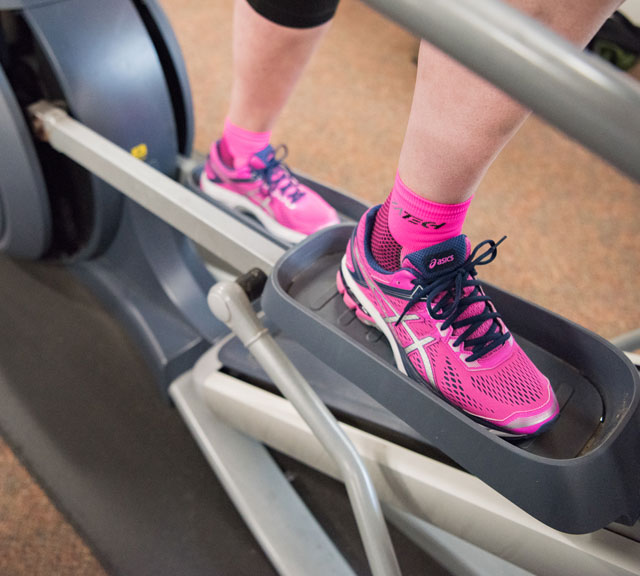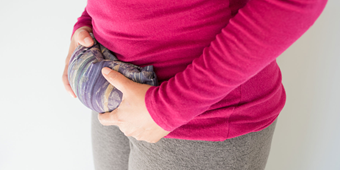What’s Your Exercise Prescription for Fertility?

Find Your Perfect Match
Answer a few questions and we'll provide you with a list of primary care providers that best fit your needs.
Exercise can help or hinder fertility – depending on how you go about it. The key is finding the right level of exercise for your current health status.
If you are trying to get pregnant, you may have questions about how exercise can boost fertility or why too many workouts can make it harder to get pregnant.
“Regular exercise usually has a positive effect on fertility,” says Jeremy Groll, MD, Medical Director, SpringCreek Fertility. “It reduces stress levels. However, too much exercise may cause an energy deficit which may inhibit or shut down the reproductive system and make it more difficult to conceive.”
High Intensity Workouts and Infertility
Excessive exercise, such as daily, intense workouts that bring you to the point of exhaustion, is associated with infertility. When your energy and fat stores are depleted, the body may shut down certain reproductive functions.
Research from the Norwegian University of Science and Technology finds that the body may not have enough energy to support both hard workouts and getting pregnant.
“High intensity workouts can alter the hormonal balance and disrupt egg growth and ovulation” says Dr. Groll.
The Norwegian study found high levels of infertility among women who trained almost every day and those who trained until exhaustion. Women who do both have the highest levels of infertility.
When the data were adjusted for risk factors such as age, women who worked out every day were 3.5 times more likely to have impaired fertility than women who did not exercise at all.
How Weight Affects Fertility
What you weigh can also impact fertility. A woman’s body mass index is used as a general guide. The ideal pre-pregnancy BMI is between 20 and 25.
Women with a BMI below 18.5 or over 29 show an increased risk of infertility. Body fat plays a significant role in reproduction. Being over or underweight can disrupt the menstrual cycle, causing irregular or absent periods.
To get pregnant, you need to have the right amount of body fat, says Dr. Groll. “If women can exercise and lose 5 to 10 percent of their current body weight with exercise and nutrition, these women have a two-fold increase in fertility.”
“Keep in mind that the goal is for any exercise training program is to maintain a positive energy balance. This can be achieved by having a realistic exercise program, sufficient sleep, and a healthy diet with sufficient calories” says Dr. Groll.
Too much exercise can cause a hormonal disruption.
Exercise: The Pros and Cons

Whether you are looking to maintain your weight and health or you are trying to lose some weight in order to get pregnant, moderate exercise is best.
If you are overweight and not exercising at all, adding a low-intensity workout that lasts three minutes at a time is a good way to start. Examples of moderate types of exercise include:
- Walking
- Yoga
- Swimming
- Dancing
- Cycling
- Aerobics
We know that exercise brings lots of positive benefits. It reduces stress, strengthens the heart, bones and muscles, regulates food cravings and weight and helps rid the body of toxins. Exercise also improves our mood and builds confidence.
The National Center for Biotechnology Information says studies show that regular workouts at moderate levels also improve:
- Hormonal profile
- Reproductive function
- Menstrual cycle regularity
- Ovulation and fertility
If you are a healthy person of normal weight, moderate exercise three to four times a week for 30 to 60 minutes is ideal.
“If you are undergoing fertility treatments, you may be instructed to limit or avoid exercise at certain times during your treatment — especially during the first few days after procedures”, says Dr. Groll. “Exercise may decrease blood flow to the uterus. In addition, with enlarged ovaries, there is an increased chance of twisting the ovaries, which could result in surgical removal.”
After you become pregnant, you should avoid extreme exercise and fitness training. Daily walking and light yoga are great options.
Find Your Perfect Match
Answer a few questions and we'll provide you with a list of primary care providers that best fit your needs.
Source: Jeremy Groll, MD, Medical Director, SpringCreek Fertility, Boonschoft School of Medicine; Healthline.com, National Center for Biotechnology Information, Norwegian University of Science and Technology





